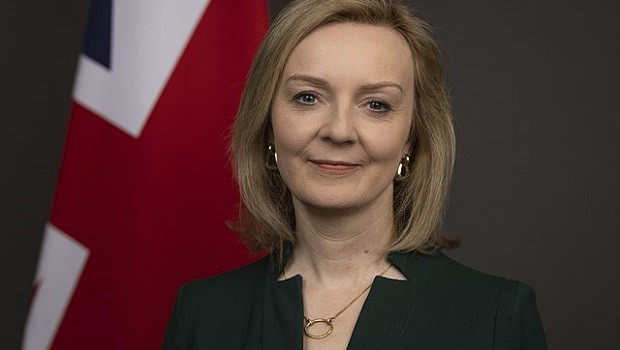Kwarteng thrown under the Truss for mini-budget blunders
PM sacks finance minister amid speculation of more tax u-turns
Pound falls against dollar, euro as markets fear more uncertainty

UK Prime Minister Liz Truss fired Finance Minister Kwasi Kwarteng on Friday, forcing him to carry the can for her government's disastrous mini-budget.
Kwarteng, who delivered the proposed packaged of unfunded tax cuts that sent markets into a tailspin, left a meeting of the International Monetary Fund in Washington a day early for urgent talks with Truss, where she demanded his resignation.
Truss was scheduled to make a statement and hold a news conference later on Friday, Downing Street officials said. The pound fell sharply against the dollar, down 1.2% to $1.12 and 0.68% against the euro to $1.15.
Speculation mounted on Thursday that the government was set to scrap all or parts of the mini-budget, which included £45bn of unfunded tax cuts but no spending review or economic forecasts. The pound rallied while gilt yields ticked lower on the speculation, although there was no official statement from Downing Street.
Kwarteng’s early return to London coincides with the Bank of England ending its emergency £65bn bond-buying package of support, which it launched in the aftermath of the mini-budget. The statement caused the pound to plunge and gilt yields to rise, and the central bank was forced to step in to prevent at-risk pension funds from collapsing.
The government has already scrapped the politically-unpopular planned abolition of the 45p tax rate and has brought forward its spending plans - and the publication of the Office for Budget Responsibility’s forecasts - to 31 October, from the originally scheduled 23 November.
Abandoning the planned rise in corporation tax to 25% set out by Kwarteng's predecessor Rishi Sunak was one of Truss's central policy aims during the Conservative Party's leadership campaign following the resignation of the discredited Boris Johnson.
However, the entire mini-budget appalled many Tory MPs who felt that giving the rich and corporate sector a tax break while workers faced the biggest tax burden in 70 years amid spiralling inflation, declining wages and soaring energy bills, would threaten their 12-year grip on power.
Kwarteng was rebuked this week by the IMF which said his tax cuts and energy support package had made the Bank of England’s battle against inflation more difficult.
IMF chief economist, Pierre-Olivier Gourinchas, said the divergence between BoE monetary policy and government's fiscal plans was "not going to work very well".
"It's like having a car with two people in the front, and each of them is steering the wheel, and trying to steer the car in a different direction," he said.
Reporting by Frank Prenesti and Abigail Townsend for Sharecast.com